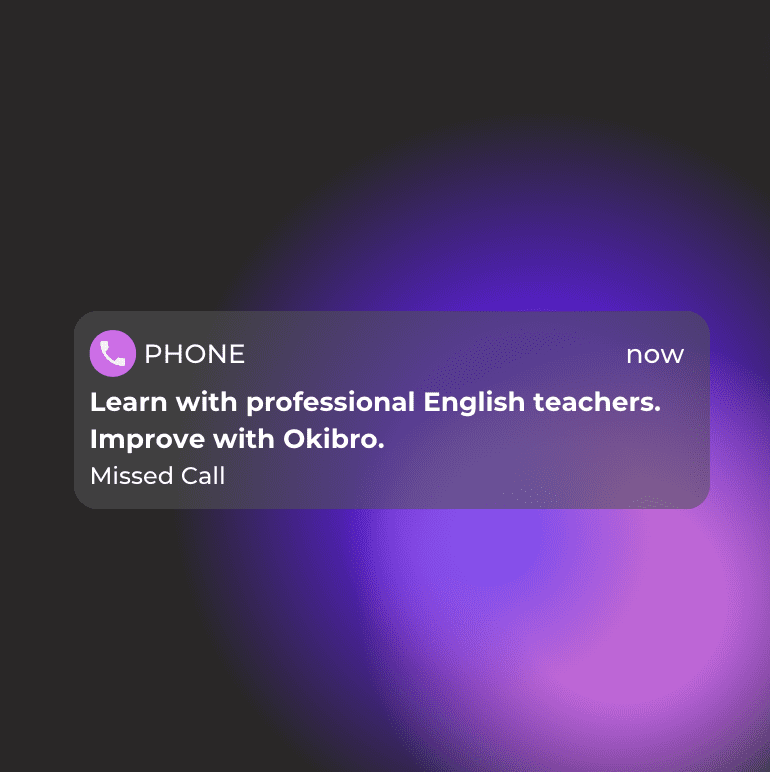Best Funny Memes About Learning English
Hey there, language enthusiasts! At Okibro, we’re all about the joy of learning English and making it a part of your daily routine. Why? Because let’s face it, practicing English every day is like your secret weapon for becoming a language ninja, and our Okibro App is here to help you level up!
Now, here’s the scoop: Ever wondered why some folks don’t quite reach their language-learning goals? It’s because they give up, just like that plant you swore to keep alive but… oops! 😅
Learning a new language can sometimes feel like a rollercoaster ride without the safety harness, right? You might think, “I’d have nailed this if I were a kid again!” Well, good news: time machines are still in development, but there’s a better way!
All you need is a plan, some goals, and a sprinkle of determination. Remember, even tiny steps can lead to giant leaps in your language journey.
So, if you’re on the English learning adventure and you’re looking for a dose of motivation in 2023, you’re in for a treat! But first, let’s chat about why English is worth your while. 🤔🇬🇧
Remember, even tiny steps can lead to giant leaps in your language journey.
Contents
Why English is Your Ticket to World Domination (Well, Kind Of)
Have you ever wondered why English is like the golden key to the world’s treasure chest? Let’s dive into why this language is your secret weapon in the global arena:
The Language of Business
Hold onto your hats, folks, because English is the language of business worldwide. Don’t underestimate the power it can have on your career and income! 💸
Connect with 2 Billion People
Yep, you read that right! Learning English means you can converse with around 2 billion people worldwide. That’s like having a VIP pass to the global party! English is the unofficial language of international business, and it can boost your hourly wage by a whopping 28%! Cha-ching!
The Ultimate Travel Buddy
Lucky for you, English is your trusty travel sidekick. Over 25% of the world speaks it, so chances are, you’ll meet fellow English speakers on your adventures. Need directions, want to haggle for a deal, or craving the best local grub? English to the rescue!
Entertainment Galore
For all you entertainment junkies, the world of movies, TV shows, and online gaming is your playground for language learning. Watch movies with a notepad, pause to jot down new words, and even use cool Chrome Extensions to read subtitles in your target language.
Learning English means you can converse with around 2 billion people worldwide.
Internet Dominance
English isn’t just the universal language of the physical world, but it’s also the ruler of the digital realm. A whopping 80% of electronically stored information is in English. Plus, major programming languages like Java and Python are English-based.
So, whether you’re chasing career success, globe-trotting, or just binge-watching your favorite series, English is your trusty companion. Embrace the language, and the world (sort of) is yours!
15+ Hilarious English Learning Memes
Memes for Grammar Lovers
Here’s a list of problems you can run into with grammar:
The Apostrophe Avalanche: Misplacing apostrophes can turn “It’s raining cats and dogs” into “Its raining cats and dogs.” Suddenly, it’s the cats and dogs who are raining!
Comma Confusion: Omitting or misusing commas can lead to situations like “Let’s eat, Grandma” versus “Let’s eat Grandma.” Punctuation can be a real lifesaver, Grandma!
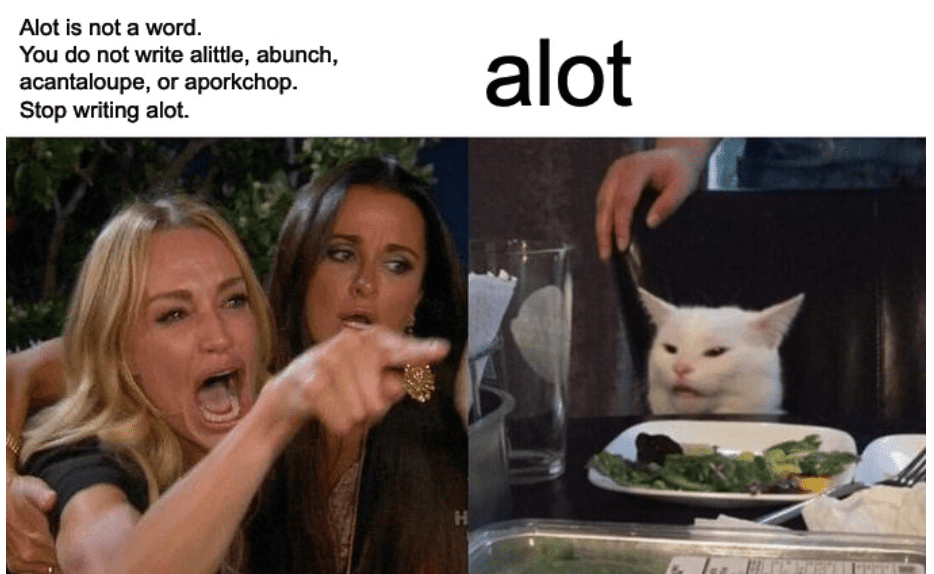
Subject-Verb Showdown: A mismatch between subjects and verbs can make you say, “The cats is dancing” instead of “The cats are dancing.” Apparently, these cats have some serious moves!
Double Negative Dilemma: Combining two negatives can result in positives, turning “I don’t need no help” into a self-sufficient statement. Who knew grammar could be so contradictory?
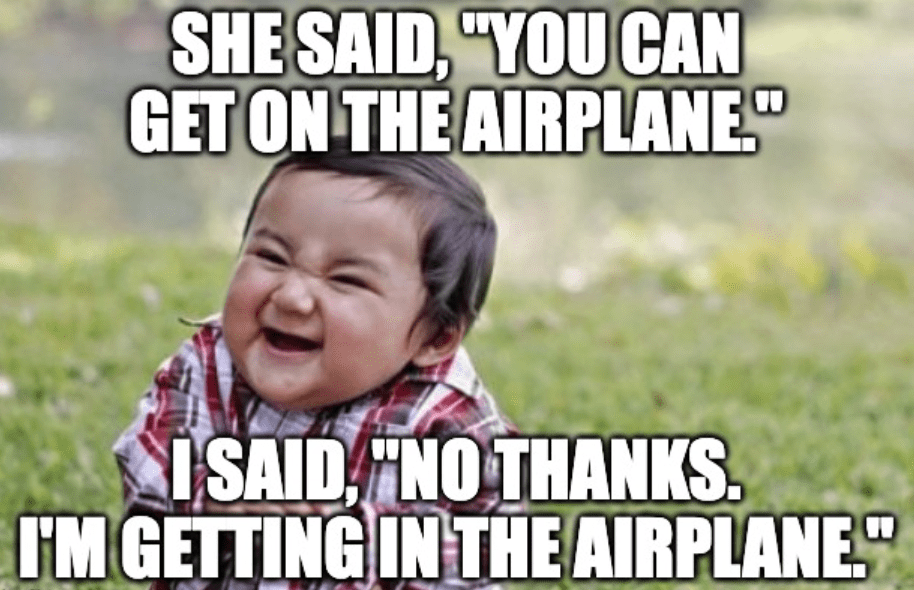
Dangling Participles: Misplacing participles can lead to hilarious sentences like “Hiking up the mountain, the view took my breath away.” Apparently, the view was doing some serious cardio.
The Tense Tango: Mixing up tenses can make your story sound like a time-traveling adventure. “I was eating breakfast, and then I will travel to the moon.” Breakfast on the moon, anyone?

Homophone Hiccups: Using the wrong homophone can create amusing confusion. “I’m board with this boring meeting” might have you longing for a surfboard.
Run-on Rampage: Writing long, meandering sentences with no breaks can leave your readers gasping for breath, like they’re on an endless rollercoaster ride, but without the thrill.
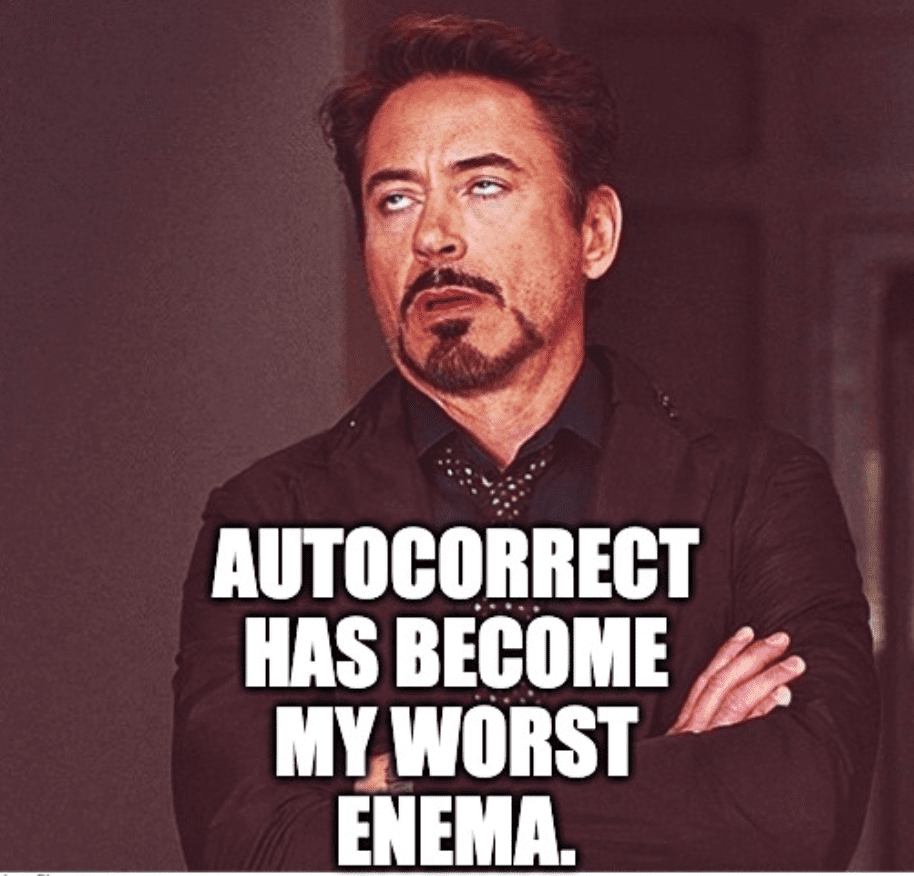
Sentence Fragments: Incomplete sentences can make you look like you’ve got a secret you’re not willing to share. “In the attic. Secrets hidden.” Spill the beans, attic-dweller!
Misplaced Modifiers: Placing modifiers in the wrong spot can lead to absurd imagery. “She found her keys in the red purse digging through the clutter.” That purse was really into cleaning, apparently.
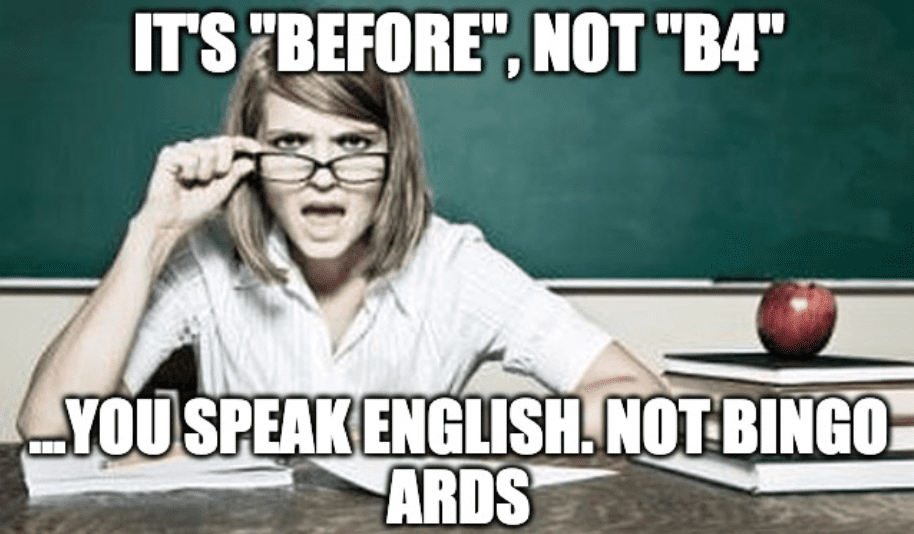
Punctuation Memes That Highlight Some Funny Instances Of Bad Punctuation
Oh, punctuation! It’s like the seasoning of the English language – a little dash here, a sprinkle of commas there, and voilà, you’ve got yourself a scrumptious sentence salad.
But what happens when you mix up those punctuational ingredients? Well, let me tell you, it can turn your linguistic feast into a comedy of errors!
Here are some problems you might encounter when you’re not quite nailing the punctuation game:

The Comma Catastrophe: Forget to use commas, and you’ll have people wondering if you’re saying, “Let’s eat, Grandma!” or “Let’s eat Grandma!” Punctuation can save lives, folks!
The Em Dash Extravaganza: Overuse em dashes—or, worse yet, use hyphens in their place—you’ll create a jarring stop-and-start effect in your writing – and it’s-not-pretty.
The Emoticon Eruption: Sometimes, people use emoticons and emojis interchangeably 😃😜🤣. While it’s fun to sprinkle in a few, overdoing it can turn your writing into a digital carnival of smiling faces and thumbs-ups. 😅✌️

The Question Quandary: Misplace a question mark, and suddenly, your innocent statement becomes an existential crisis. “Are we friends or are we enemies?”
The Period Problem: Forget to use periods and your sentences just run on and on and on and it’s like a never-ending story and there’s no pause for breath and it’s exhausting to read!

The Exclamation Expedition: Overuse exclamation marks, and your text can sound like it’s SHOUTING AT YOU!!! Calm down, punctuation, we get it, you’re excited!!!
The Dash Disaster: Overuse dashes – or – use them incorrectly – and your writing can look like it’s been attacked by a hyphen-happy maniac.

The Apostrophe Apocalypse: Confuse “its” with “it’s,” and you’ll make even the grammar gurus cringe. “The dog wagged it’s tail.” Ouch!
The Parenthesis Pandemonium: Use too many parentheses (and too many nested ones (seriously, stop it (it’s confusing))), and your readers might start feeling like they’re stuck in a maze.
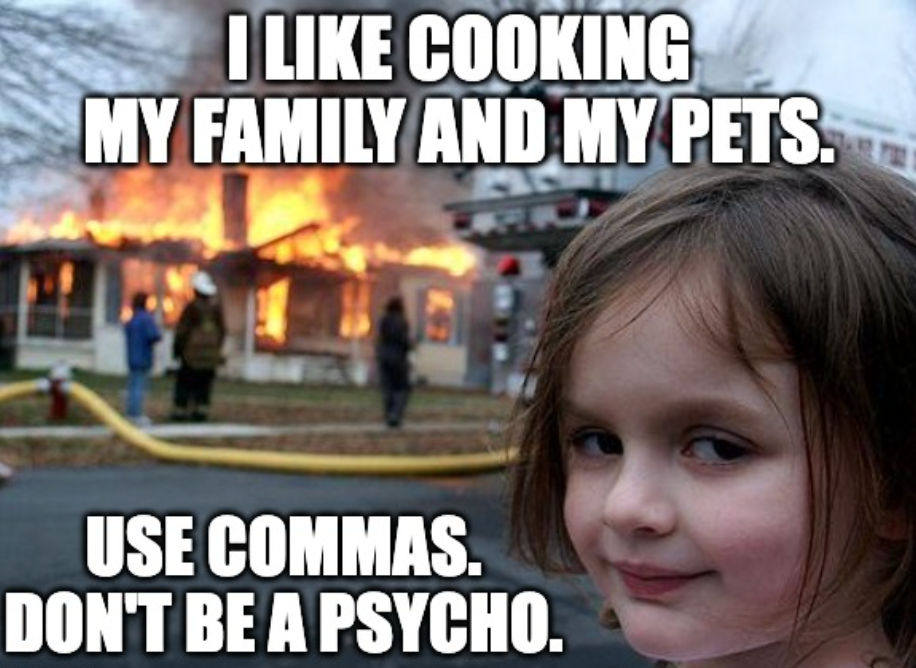
The Ellipsis Enigma: Overuse the ellipsis… and you’ll leave people… wondering… if you’re… ever going to… finish your… sentence…
The Semicolon Surprise: Throw in a semicolon where it doesn’t belong; and you’ll have people scratching their heads; wondering why; you did that.

The Quotation Quagmire: Mismatched quotation marks can make your writing look like it’s stuck in a never-ending conversation. “She said, ‘I love pizza,” and I replied with, “Me too.”’ It’s like a verbal tennis match that never ends!”
The Apostrophe Avalanche: When you’re unsure whether it’s plural or possessive, and you just start throwing in apostrophes everywhere, your writing becomes a punctuation minefield. “The cat’s chased their’s tails all day.” Cats and apostrophes alike are confused!

Memes About Commonly Confused Words in English
Ah, the English language, where words that sound the same can have wildly different meanings!
So, here’s a humorous and friendly list of problems you might encounter with commonly confused words in English:
Their, They’re, and There Trouble: Mixing up “their,” “they’re,” and “there” can make your sentences sound like a playground rumor. “Their going to the park over there.” Umm, whose park?
Your vs. You’re Yikes: When you’re not sure whether to use “your” or “you’re,” you risk turning your message into a cryptic puzzle. “You’re dog is cute.” My dog is what?
Effect vs. Affect Ailment: Choosing between “effect” and “affect” can feel like navigating a maze. “The weather really had an affect on my mood.” Did it make you more “weather-like”?

To, Too, Two Tribulation: Mixing up “to,” “too,” and “two” can lead to some numerically confusing situations. “I’m going to eat pizza too.” Wait, is that a pizza-eating contest?
It’s vs. Its Irritation: Misusing “it’s” and “its” can make your writing look like it’s suffering from an identity crisis. “The cat licked it’s paws.” It is paws? Mind blown!
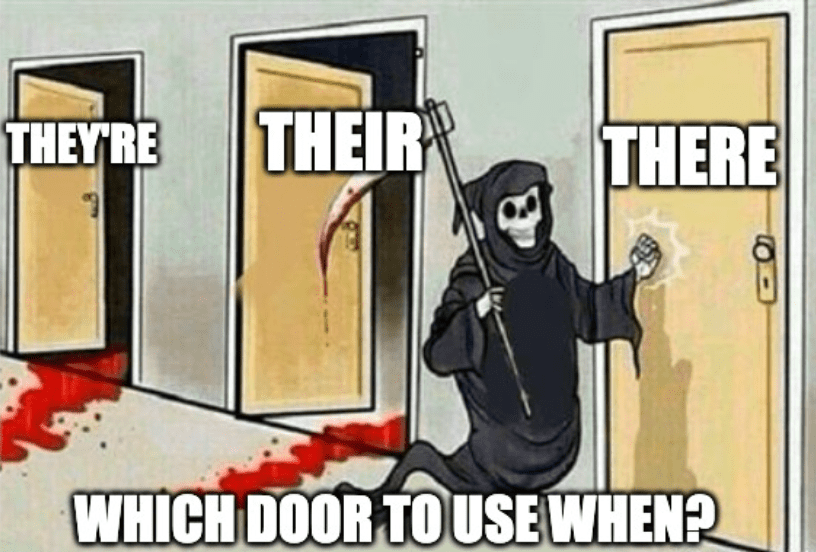
Lose vs. Loose Loss: Confusing “lose” and “loose” can make it seem like you’re setting something free instead of experiencing a defeat. “I hope I don’t loose my keys.” Well, they might become “key-dentities.”
Whose vs. Who’s Whimsy: Mixing up “whose” and “who’s” can turn a simple question into a grammar riddle. “Who’s jacket is this?” A jacket with a secret identity, perhaps?
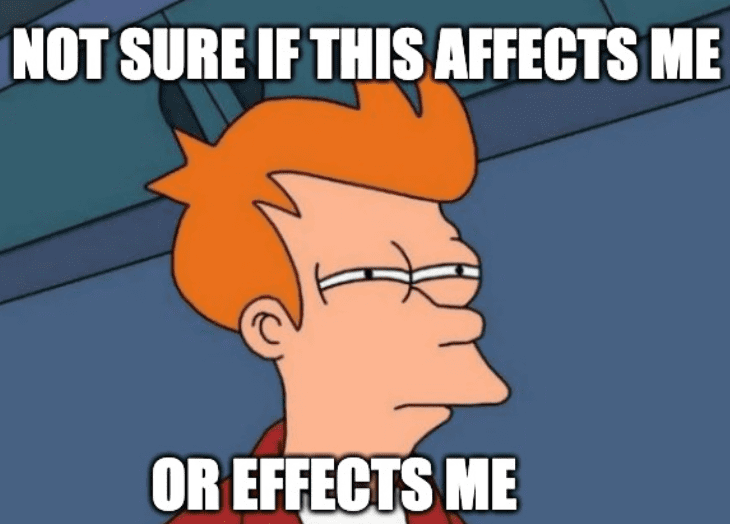
Then vs. Than Turmoil: Choosing between “then” and “than” can lead to comparisons that make no sense. “I’d rather have cake then pie.” Life choices can be tough!
Passed vs. Past Pandemonium: Confusing “passed” and “past” can make your storytelling take a strange turn. “I ate the entire cake in the passed week.” Did the week pass by on its way to the cake?

Principal vs. Principle Perplexity: Mixing up “principal” and “principle” can turn your school stories into financial mysteries. “The school’s principal is honesty.” Are they investing in truth?

Conclusion
In conclusion, we’ve embarked on a laughter-filled journey through the world of English learning memes, and what a ride it’s been! From the infamous “your vs. you’re” showdown to the epic battles of “there, their, and they’re,” these memes have shown us that learning a language doesn’t have to be all serious business.
We’ve chuckled at the struggles of English learners worldwide, shared a few facepalms over common mistakes, and, most importantly, we’ve learned that it’s okay to make mistakes on our language-learning adventure. After all, isn’t laughter the best way to remember the difference between “effect” and “affect”?
So, whether you’re a seasoned language pro or just dipping your toes into the grammatical waters, remember to keep smiling, keep learning, and keep the English learning memes coming. After all, laughter is the universal language we can all understand!
